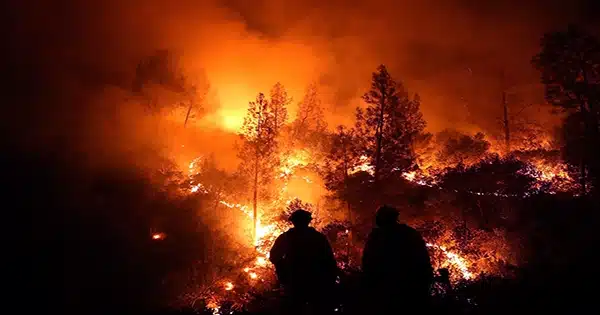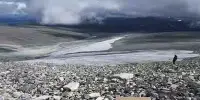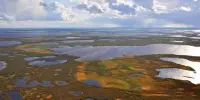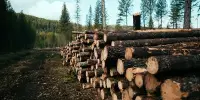On the evening of December 4, 2017, a small patch of brush near Santa Paula, California, caught fire. The flame quickly escalated into one of the state’s largest wildfires in history. By the time firemen were able to put out the Thomas Fire, it had consumed almost 1000 square kilometers of coastal woods, killed two people, and destroyed hundreds of buildings.
The disaster wreaked havoc on land, but it may have also allowed coastal ecosystems to thrive, according to a new study published today in the Proceedings of the Royal Society B. As the fire’s ash plume billowed across the Pacific Ocean, it deposited a range of chemical compounds, providing a feast for marine bacteria.
The study’s findings “demonstrate the interconnectedness of ecosystems not just locally, but regionally,” says Camille Stevens-Rumann, a fire ecologist at Colorado State University who was not involved in the research.
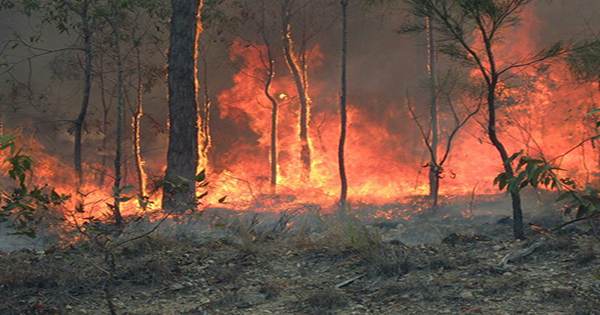
Tanika Ladd of the Shannon Point Marine Center was pursuing her Ph.D. at the University of California, Santa Barbara when the Thomas Fire broke out. She was preparing for a research cruise aboard the R/V Sally Ride as part of her study into phytoplankton—tiny, sunlight-fueled creatures that form the foundation of many aquatic food webs. However, as ash fell into the sea along the Santa Barbara Channel, Ladd and her colleagues recognized they had a unique opportunity to research the impact of wildfire on marine life.
Some research suggests that burning forests and volcanic eruptions, which emit enormous volumes of ash and other airborne particles, might change the chemistry of neighboring aquatic habitats. Because ash can include significant amounts of dangerous heavy metals, these consequences are frequently detrimental. However, because it is generally high in iron, ash can have a fertilizing effect. Severe wildfires in Australia from 2019 to 2020, for example, could have aided in the initiation of phytoplankton blooms thousands of kilometers distant in the Southern Ocean.
Ladd’s coworkers retrieved ash that had fallen on car windshields across Santa Barbara before boarding the Sally Ride. When the team arrived at sea, they collected seawater and mixed it with the ash. They measured the types and quantities of bacteria in the water, as well as the amounts of other chemical compounds, over the course of four days.
They discovered that the ash provided significant concentrations of numerous nutrients required by phytoplankton for growth and reproduction, including large amounts of nitrogen. They also noticed that a wide range of microbial species were taking advantage of the abundance. “Everything seemed to benefit,” recounts Ladd.
The findings show that wildfire ash could help enhance marine nutrient levels, which can vary depending on the season. Nitrogen levels, for example, decline off the coast of Southern California in late summer and fall, just when fire season begins.
The experiment, however, “has raised as many questions as it has answered,” according to Sasha Kramer, a marine scientist at the Monterey Bay Aquarium Research Institute. Although bacteria of all types thrived in the bottles, in-water measurements obtained at the same time revealed that dinoflagellates—a type of plankton associated with toxic algal blooms—reaped disproportionate benefits. “Clearly, much more research… is required” to determine if ash falls benefit or hurt marine ecosystems, according to Kramer, who took part in the research voyage but was not engaged in the study.
Ladd concurs, saying that the research “was done in a very specific setting with a very specific fire.” However, because climate change is increasing the frequency and fury of wildfires, marine scientists may have many more opportunities to examine how flames and waters interact.
